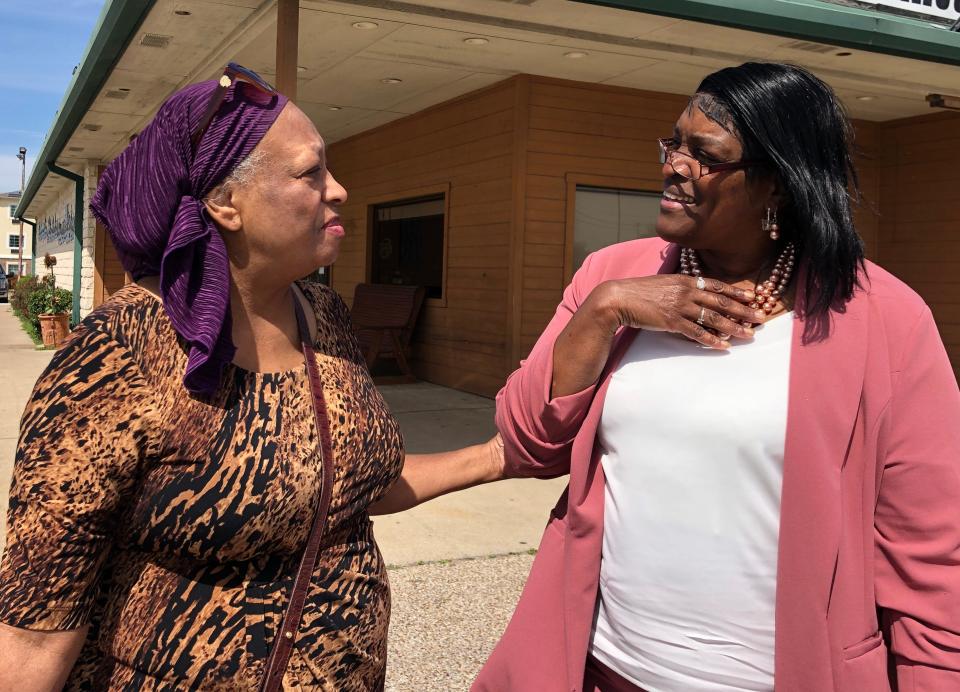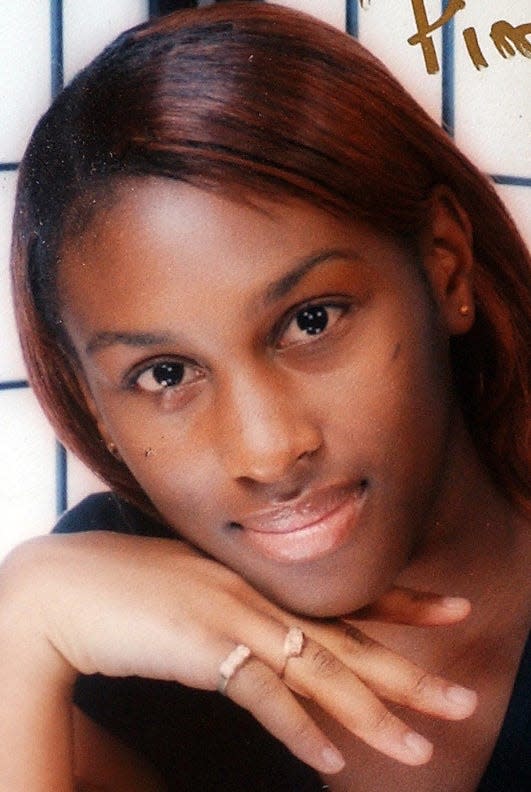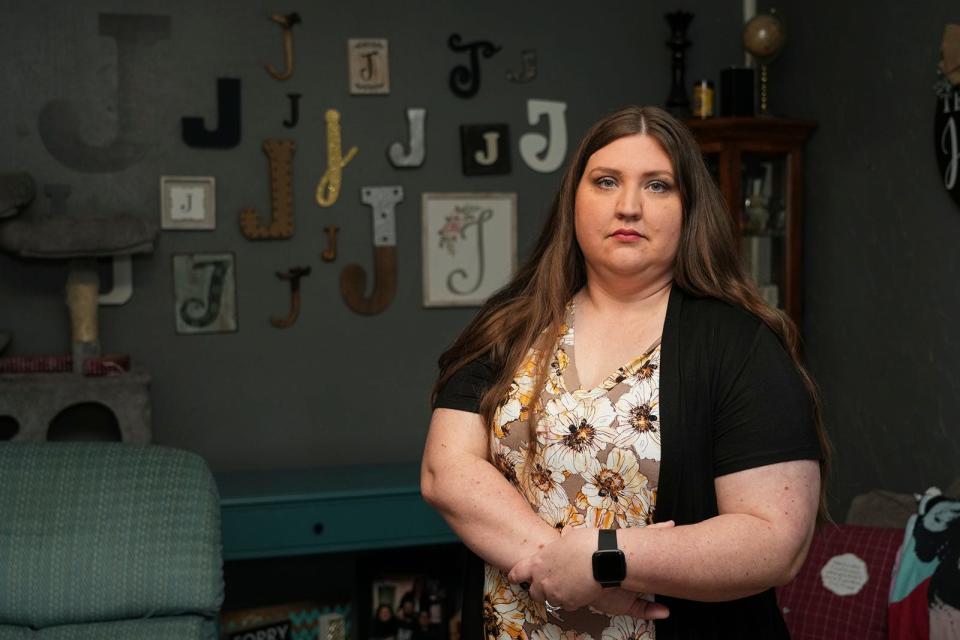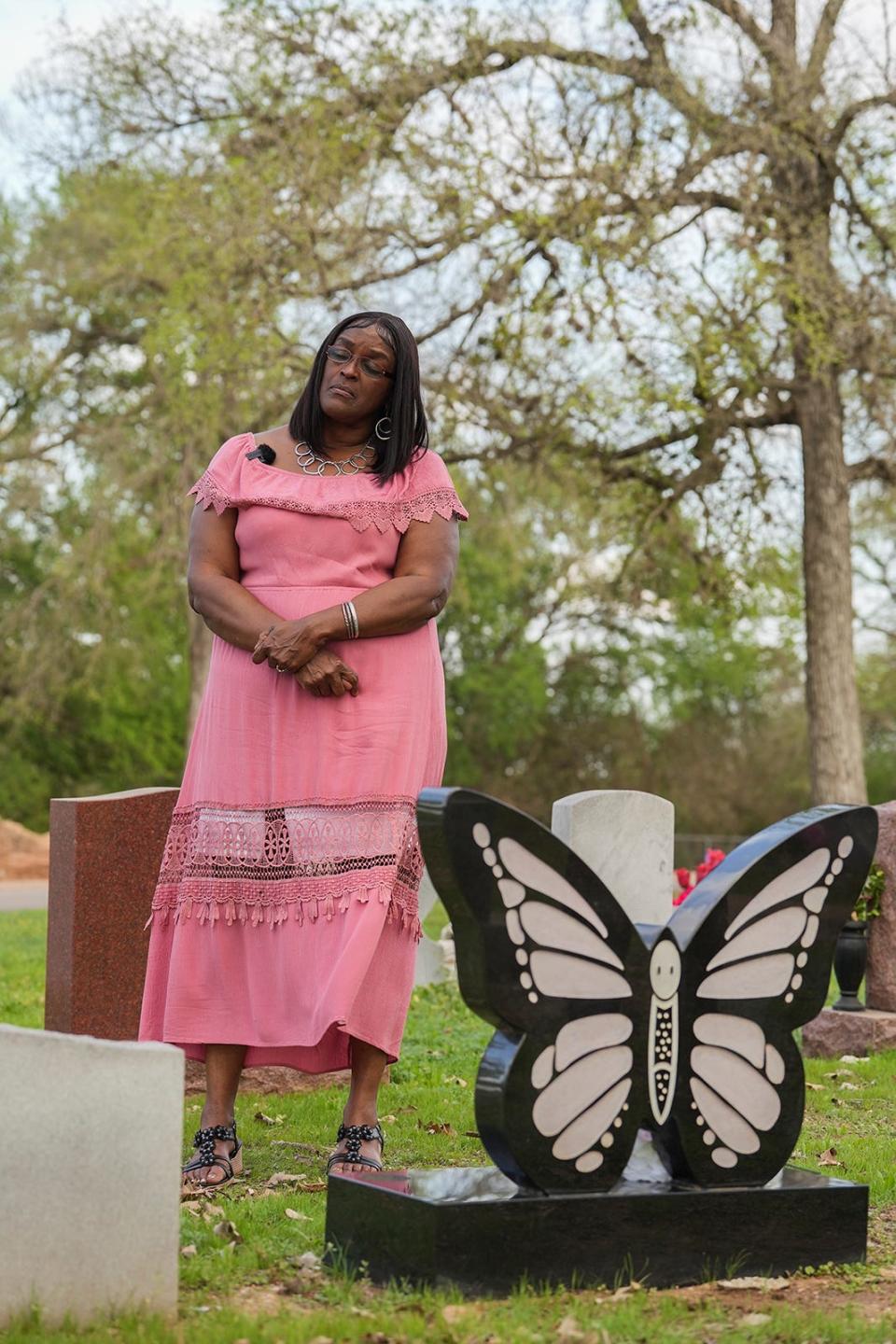With parole denied for Marcus McTear, a new chapter begins for Ortralla Mosley’s mother
Editor’s note: This article describes abusive dating relationships and the violent murder of a high school student. Call the National Teen Dating Abuse Helpline at 866-331-9474, text “LOVEIS” to 22522 or visit loveisrespect.org for immediate, confidential assistance.
The email from the parole board hit Carolyn White-Mosley’s inbox on Monday morning, ending her weekslong wait. In a sea of boilerplate prose, two words floated to the surface, carrying her spirits with them.
“Denied parole.”
Her daughter’s killer, Marcus McTear, will stay in prison.
“Hallelujah, thank you, Jesus, my prayers are answered,” White-Mosley said.

She doesn’t find joy in the incarceration of her daughter’s ex-boyfriend, now 36. Just relief and a newfound sense of freedom.

White-Mosley has spent the past two decades trying to salvage something from the 2003 stabbing of 15-year-old daughter Ortralla Mosley in an upstairs hallway of Reagan High School (now Northeast High) — a horrendous crime that was the only time a student has been murdered on an Austin school district campus.
White-Mosley pressed for treatment for McTear, then 16; a new policy at Austin schools to handle cases of teen dating violence; a new state law requiring such policies in all schools; and more tools in the federal Violence Against Women Act to prevent and defuse toxic teen relationships.
She forged so much good out of the worst trauma in her life.
This first shot at parole marked a fresh reckoning for McTear — no longer a smiling teenage football player, now a grown man wearing the years on his face. But it also signaled a turning point for White-Mosley.
She decided her own sentence was over, her obligation to this cause. Now she can work on healing, on reconnecting with her older daughter and loving on her grandkids, having missed too many holidays and dinner table discussions as they grieved apart.
“I just pray that he gets the help he needs,” White-Mosley said of McTear. “But I’m moving forward. That’s all I can do is move forward. Life begins for me. I can now live.”
Parole board cites two factors
White-Mosley exuded that same lightness two weeks ago, on a Tuesday that had every reason to be a heavy day.
March 28 was the 20th anniversary of the murder of Ortralla, a bright student and drill team leader known to everyone as Tralla. White-Mosley woke up in a motel room in the prison town of Gatesville, 90 miles from home. It was her day to meet with the lead member of the parole board.

White-Mosley slipped on a salmon-colored pantsuit and rose gold-toned jewelry, radiating the pink hues that Ortralla loved so much. Upon arriving at the red-brick parole board office, set back from a sparsely traveled country highway, White-Mosley nervously clasped hands with a small circle of friends and prayed.
"Let my words be heard in love," she said. "Let my words be heard in understanding."
After a closed-door meeting with the parole board member that lasted well over an hour, White-Mosley emerged with a buoyant smile I hadn’t seen before.
“As of today, I can breathe,” White-Mosley said. “I no longer have to hold my breath.”
She felt heard. Proof of that came in the parole denial announced this week.
Without going into specifics, the parole board cited two factors: The viciousness of the murder, which indicates “the offender poses a continuing threat to public safety,” and a pattern of misconduct that suggests “a predisposition to commit criminal acts upon release.”
The parole board set the longest period possible — 5 years — before it will consider McTear again. If he serves his full 40-year sentence, McTear would be released in 2043.
I’m not privy to the parole board’s files, but I’d imagine RaeAnne Jones was key in illustrating McTear’s pattern of criminal conduct. She dated McTear in high school, before he dated Ortralla. He was so abusive to Jones that her family had to move across town for their safety. In recent years, McTear has tried repeatedly to contact her from prison.

News of the parole denial brought Jones “a tremendous amount of relief.”
“Marcus serving his full sentence is only a small part of the justice that Tralla deserves,” Jones said. “I can now rest easier knowing that both our families and I are safe. There is some comfort in knowing that our justice system is working as it should to protect the public.”
Starting to let go
The weekend before the parole board hearing, White-Mosley had a dream in which Ortralla told her: “Well done. You’re finished. Go and smile.”
White-Mosley had been afraid to let go. She felt like she hadn’t even fully exhaled since she saw Ortralla’s body at the morgue. “That was my last thought of my daughter, that breath,” she told me. “I didn’t want to release it.”
But the morning after that dream, White-Mosley saw something different in the mirror. The smile of someone starting to let go.

At first, she wondered if this was a mistake, loosening her grip on the tragedy that shaped the past 20 years of her life.
“I said in my heart, ‘Tralla, are you sure I’ve done everything?’” White-Mosley said.
She could practically hear her daughter’s voice in the words the echoed back:
Overboard, Mama. Overboard.
Grumet is the Statesman’s Metro columnist. Her column, ATX in Context, contains her opinions. Share yours via email at bgrumet@statesman.com or via Twitter at @bgrumet. Find her previous work at statesman.com/news/columns.
Dating abuse is a pattern of coercive, intimidating, or manipulative behaviors used to exert power and control over a partner. Such behaviors by an abusive person may include:
• Checking your phone, email or social media accounts without your permission
• Putting you down frequently, especially in front of others
• Isolating you from friends or family — physically, financially or emotionally
• Extreme jealousy or insecurity
• Explosive outbursts, temper or mood swings
• Any form of physical harm
• Possessiveness or controlling behavior
• Pressuring or forcing you to have sex
For support, call the National Teen Dating Abuse Helpline at 1-866-331-9474, text “LOVEIS” to 22522 or visit loveisrespect.org.
SAFE offers Expect Respect support groups in some middle and high schools to help young people who have been exposed to violence in the community, at home or in peer relationships. All services are free, confidential and provided at school during the day. To learn more, or to talk to someone about teen dating violence, email expectrespect@safeaustin.org or contact the 24-hour SAFEline at 512-267-7233; text 737-888-7233; or chat at safeaustin.org/chat.
Source: Love is Respect, a project of the National Domestic Violence Hotline
This article originally appeared on Austin American-Statesman: Ortralla Mosley's mother starts new chapter as killer is denied parole

